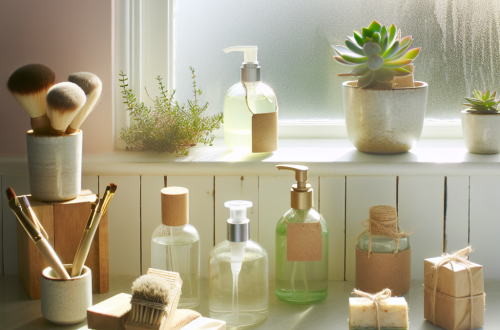The science of hair growth myths and truths unravelled

Hair growth is one of those topics that’s shrouded in just enough mystery to keep us all guessing. We hear tales of miraculous products and ancient rituals that promise cascading locks in no time. But when you peel back the layers of myth and hearsay, what’s really happening on our scalps? Let’s explore the science (and nonsense) behind hair growth.
Not long ago, I found myself in a rather heated debate with my friend Sarah over lunch about whether hair grows faster if you cut it often. I was adamant that it was true, recalling the number of times my grandmother swore by her bi-monthly trims. But Sarah, armed with her smartphone, quickly shot back, “Science says no!” Turns out, she was right. Regular trims don’t speed up your hair growth; they just help get rid of split ends, making your hair look healthier.
Hair Growth Basics
First things first, let’s talk about the hair growth cycle. Hair grows in a cycle with three main phases: anagen, catagen, and telogen. Anagen is the growth phase, lasting anywhere from two to seven years, depending on your genetics. During this phase, your hair cells are rapidly dividing, and your hair grows about half an inch a month on average. Then there’s catagen, a brief transitional phase where growth stops, and finally, telogen, the resting phase, where the hair eventually falls out.
Dr. Angela Lamb, a dermatologist at the Icahn School of Medicine at Mount Sinai, explains, “Most people have about 80 to 90 percent of their hair in the anagen phase at any given time.” This constant cycle is why we all lose a little hair every day up to 100 strands is perfectly normal.
Busting Some Hair Myths
Now, the myth that washing your hair makes it grow faster it’s a classic. The logic behind it might be that cleanliness promotes a healthy scalp, which encourages growth. While a clean scalp is indeed important, there’s no direct relationship between washing frequency and growth speed. Over-washing might actually do more harm than good by stripping natural oils needed for healthy hair.
Then there’s the idea that you can stimulate growth by brushing your hair 100 strokes a day. A practice that seems more at home in a Victorian sitting room than today’s fast-paced world. While a little brushing can stimulate blood flow to the scalp, excessive brushing might lead to breakage, especially if you’re too rough.
Let’s not forget the old wives’ tales about plucking gray hairs. “If you pluck one, two will grow back in its place!” my aunt used to warn ominously. It sounds like something out of a Greek myth, right? In reality, each follicle can only produce one hair at a time, so plucking doesn’t double your troubles. It might, however, cause trauma to the follicle, which isn’t great if you’re trying to keep your hair healthy.
The Role of Diet and Supplements
There’s a lot of buzz around the use of diet and supplements for hair growth. Vitamin D, biotin, and omega-3 fatty acids are often touted as secret weapons for luscious locks. While a balanced diet rich in these nutrients can support healthy hair, they’re not miracle workers. Dr. Shari Lipner, an associate professor of dermatology at Weill Cornell Medicine, notes, “Supplementation helps if you’re deficient in a certain nutrient, but if your diet is balanced, extra vitamins probably won’t have a noticeable effect.”
On a personal note, I started taking biotin supplements a few years ago after reading about its supposed benefits. Did it transform my hair overnight? Not quite. I did notice my nails growing a bit faster, but my hair didn’t suddenly turn into Rapunzel’s. Perhaps that’s my cue to focus more on a balanced diet!
Stress, Sleep, and Lifestyle
Who hasn’t heard someone say, “I’m so stressed my hair is falling out!”? It’s not just an expression. Stress can indeed trigger hair loss conditions like telogen effluvium, where stress pushes a large number of hair follicles into the telogen phase prematurely. The good news? This type of hair loss is usually temporary, and managing stress can help hair growth bounce back.
Sleep is another crucial factor. A study published in the Journal of Clinical Endocrinology & Metabolism found that sleep directly impacts hair growth. Quality sleep aids in the regulation of melatonin and cortisol, hormones that play a role in hair health. So, if you’re burning the midnight oil, it might be time to reassess your night-time routine.
Surprising Facts and Unusual Insights
One of the more surprising things I learned while researching this topic is the effect of different climates on hair growth. For instance, some studies suggest that hair grows faster in summer than in winter. The increased blood circulation from warmer temperatures could be a factor, though more research is needed to confirm this.
Another unexpected tidbit: hair growth rates can differ based on ethnicity. According to the International Journal of Dermatology, Asian hair tends to grow faster than African or Caucasian hair. This is thought to be related to the hair follicle shape and density, which varies among different ethnic groups.
Hair Treatments and Technology
Let’s talk about treatments. Hair growth shampoos, serums, and oils are all the rage, but their effectiveness can be hit or miss. Products containing minoxidil are often recommended for those experiencing hair loss, as they’re scientifically backed. Still, the results can vary, and not everyone will see significant improvement.
And then there’s technology. Laser therapy is becoming increasingly popular for hair growth. Devices like laser combs or helmets use low-level laser therapy (LLLT) to stimulate hair follicles. While some studies, such as one in Lasers in Surgery and Medicine, show promise, these devices can be pricey, and results aren’t guaranteed for everyone.
Making Sense of It All
Navigating the sea of information about hair growth can feel overwhelming. It’s a mix of science, speculation, and a fair bit of marketing hype. But perhaps the most important takeaway is that hair health reflects overall health. A balanced diet, a stress-free lifestyle, and regular care often create the best conditions for your hair to thrive.
For me, the journey has been about finding what works personally, despite the countless recommendations and quick fixes out there. And while I can’t say I have all the answers, I’ve learned that patience, and maybe a little humor, are essential ingredients in the quest for healthy hair.
So, next time you hear a hair growth myth, pause and think it through. Maybe it’s just me, but exploring these tales with a skeptical eye feels a bit like peeling back layers of an old, cherished story, only to find kernels of truth mixed with a good dose of fantasy.


